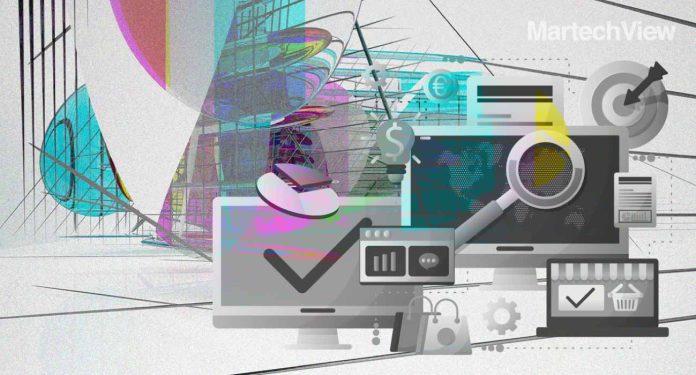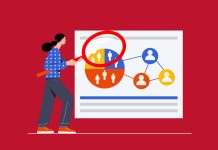Explore the future of MarTech with Alex Abbott, the Bearded Sales Guy. Gain insights on navigating industry disruption, fostering trust, and driving sustainable growth in today’s evolving sales landscape.
If history has taught us one thing in this industry, the pipeline is no longer a predictable lead measure of success.
Between 2000 and 2009, marketing-supported sales teams around the world with pipeline-generating initiatives and messaging, 2010 saw the birth of marketing growth engines with the focus being on content creation, nurturing, and lead scoring, while 2020 saw COVID provide false hope that our industry would re-awaken to the opportunity E-commerce acceleration might bring to it.
But for many, the anticlimax is well and truly over, with over 200,000 redundancies across several thousand companies that make up the MarTech, AdTech, and SalesTech lunarscape. Now we’re facing the fact that buyers have experienced too many failed implementations and been sold too many visions never realized, and the growth we see might just be our new reality; with more than 15,000 applications and the explosion of AI, where do you think we’ll be in the next 12 months? I assure you it will be a very different place to the one we see today.
Who is Alex Abbott, the Bearded Sales Guy
Thirty-one years in sales and twenty-four years in B2B sales and marketing, driving growth for various tech companies selling MarTech, AdTech, and SalesTech solutions. I’ve enjoyed growing revenue teams in Europe, the Middle East, Africa, and APAC and now work with MarTech businesses in the US to help drive growth.
With five president club wins for overperformance across three different companies in three different continent’s I know what it takes to quantify and deliver differentiating commercial value for brands seeking to extract value from their technology and services investments.
On two occasions, success came from a standing start in two regions where no predefined relationships existed.
The challenge I see for many
The MarTech industry is already a quarter of a century old, full of people who know what to do as they’ve been there before. Or external folks who believe a new set of eyes from outside the industry is needed from a different industry to drive growth. It’s all opinionated BS.
At the beginning and end of the day, you will struggle to win if you don’t know how to quantify your differentiating commercial value and compare your value against your closest competition or have expertise that knows how to teach your customers a new perspective. And without consistent, predictable wins, you’ll struggle to grow.
Additionally, to win, you need to know how each customer realizes the value and aspires to achieve new levels of value and time. Without a clear path to value, how do you know where to take your customers?
Keep it simple stupid.
I prided myself on keeping things simple. Not easy, but simple.
- As a sales leader, I led the enablement of my people, ensuring a common language and deep understanding of the commercial value we collectively delivered, including the pathway to value for our customers. This was complex, but it took many hours of training and coaching to share this knowledge and ensure each person applied it effectively.
- Our sales process and its sales plays were simple, and we knew exactly who our ideal customer was; we only went after them. Unless we qualified an individual’s motivations, the deal was a non-starter. Then, it was simply about defining the purchase criteria, agreeing on the evaluation process, and helping them build consensus with their peers. By coaching those buyer milestones, we drove predictable growth.
- We did all of our prospectings, our BDR’s working strategically with our AE’s as a team. We created our messaging, a combination of Insight and Success stories. In our core regions, we ran intimate meetings with customers, partners, and prospects aligned around our value messaging, paving the pathway to value!
Our growth came from each team member’s ability to build rapport and create a meaningful conversation around value.
That was then; what about now?
The MarTech industry is going through an intense form of disruption. I see companies trying to re-invent themselves with new categories created, but essentially, the tech is trying to do the same thing.
AI isn’t new in MarTech. I’ve been selling solutions with AI and Machine Learning for 15 years. The winners are the ones who realize it’s just another feature that enables a better future for the brand. And now I think more so for the Marketer who no longer needs to rely on IT as much as they once did.
The biggest difference today is that buyers no longer believe sellers, or vendors for that matter. It doesn’t matter what one does with their brand, messaging, or sales process; at the end of the day, without trust between you and your prospects or customers, it doesn’t matter how good you think your solution might be; no one is listening.
In 2020, I left Oracle after a successful ten years of living and working, leading my teams across three continents. Since leaving, I’ve invested my time testing various methods to solve the ‘trust’ problem.
I see that the traditional sales and marketing funnel companies once relied on is broken – lead conversion is dropping to an all-time low, cost of sale is stifling growth, and redundancies are plenty as organizations find their new reality. Like the horse and cart, valued by the ecosystem that lives off it yet damaging to society, it took twenty years before the production of automotive vehicles replaced half the horse and carriages on the road.
For 15 years, we’ve watched buyer behavior change and have paid untold amounts of lip service to it as we strive to be buyer-centric yet will happily annoy our prospects with incessant amounts of sales messaging. We know that relationships are the lifeblood of growth; we know relationships cannot be formed without trust and rapport being built. Yet, we enable our teams on sales messaging and processes that do not measure the strength of relationships our people have with our audience or their network. Why?
The most carefully crafted insight-based messaging will only be listened to by the 5-10% of one’s territory in-market or considering a change. And without a pre-existing relationship, one has little chance of winning one’s business.
I have been running a study for the last two years; in this study, we have included people following a relationship-first approach to business growth. We are monitoring BDR’s, Account Executives, Sales Directors, and Business Leaders to see the effects of the approach and to explore the differences across the levels of experience.
The key strategic findings are that sustainable growth requires:
- An organic strategy
- New skills for the entire organization
- A personal change strategy for organizational change
- A different set of lead measures
With this new approach, visibility and rapport scaled between your organization and your target audience, and your revenue-facing folks developing meaningful conversations with your ideal customers at scale, providing them with the environment they need to position and quantify the differentiating commercial value your technology brings!
The difference now is degrees of trust have formed (and it doesn’t take long). Therefore, your hidden value is unveiled.










